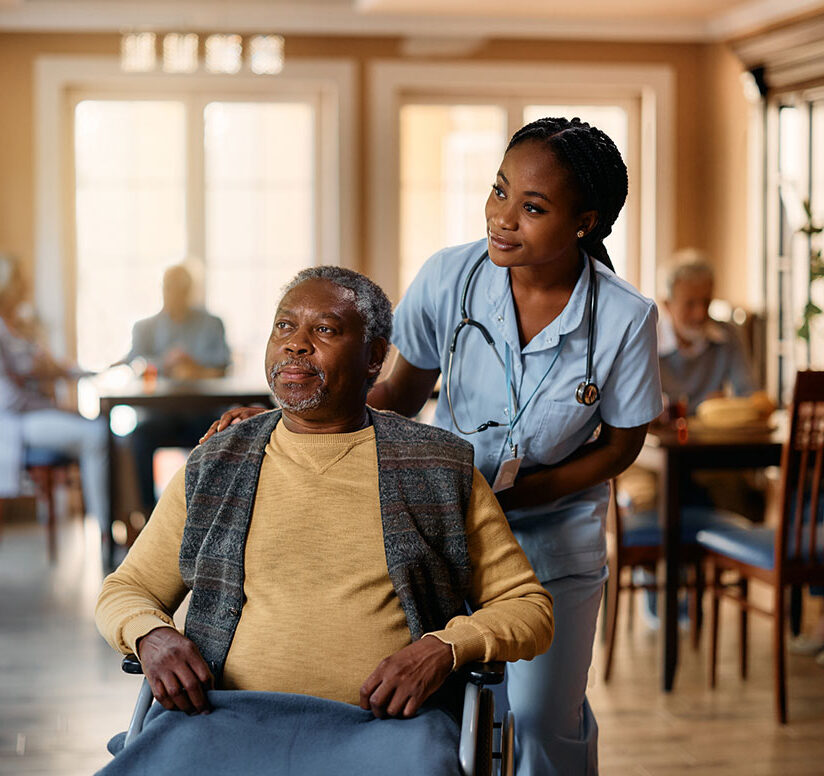Interview with Dr. Nimalie Stone (CDC) January 28, 2021
Dr. Nimalie Stone, the medical epidemiologist for the Centers for Disease Control, joined the LeadingAge Coronavirus Update Call on January 28, 2021. She answered questions posed by Ruth Katz and by callers.
(Listen to the interview here.)
Q: What can we do to address staff vaccine hesitancy?
A: Nearly all nursing facilities have had first clinics. We are learning through the Pharmacy Partners and through the 1,000 or so nursing homes that are voluntarily submitting vaccine information through the NHSN module. (The CDC finds that information so valuable – so thank you if you are submitting it.) We have seen high vaccine acceptance rates for residents. The initial levels of acceptance for staff have been lower than we had hoped, for many reasons. Long term care settings are a top tier priority, but that means these folks are “going first” and the roll out was happening over the holidays so there wasn’t really enough time to do a good job of addressing concerns and questions. Now we need to give colleagues as much information as quickly as we can so that they can make the best decision about the vaccine for themselves. It seems likely that some of those who were waiting and watching may take the vaccine in the second clinic.
The CDC website has toolkits designed to communicate information about the vaccines to increase confidence. We recognize that there is a great deal of discussion in social media and people don’t always know what information to trust. The CDC website is a good and trustworthy resource. It is also the case that one-on-one conversations seem to be most effective in addressing fears and misinformation.
Q: Is having some symptoms after receiving the vaccine a sign that the vaccine is working?
A: Fatigue, body aches, and sore arms are your immune system responding. The second dose may produce more symptoms because the first dose is priming the immune system and after the second dose the immune response will be more robust.
Q: What do we know about the new variants?
A: It can be alarming to hear about these mutations. We live in an inter-connected global community and we will see these variants travel to the United States. We are still trying to learn what the impact of these variants will be, but there does seem to be increased transmissibility. We need to continue to social distance, stay within our household bubble, avoid groups, and wear face masks to disrupt spread. The vaccine is another good tool in the toolbox. COVID-19 is a terrible disease and we are seeing long term effects so caution is warranted.
Q: Have there been studies suggesting that those who have had COVID-19 would have more symptoms in response to the vaccine?
A: My work is not in that clinical area, so I don’t specifically know the answer. However, it does seem plausible in the same way that the second dose may create more symptoms.
Q: Should people premedicate with analgesics before getting the vaccine?
A: We discourage that because we don’t want to take the chance of blunting the immune system’s response. It would be unfortunate to take a medication that might interfere with the immune response, so we want to err on the side of caution. If needed, a person could take something for symptoms after being vaccinated.
Q: If you had COVID-19 within the last 90 days, should you delay getting the vaccine?
A: We recommend that if you are in the midst of an active infection you should defer. Once a person has recovered there is no minimum time from recovery that would prevent receiving the vaccine. The 90 -day number is just the time in which we believe you may still be immune after having had COVID-19.
Q: Should there be a time lag between the vaccine and giving a TB test?
A: There is not a reason to delay vaccine for someone who has just had a TB test. However, if you can wait a little after giving the vaccine to do the TB test, that may make sense as it is hard to know if the TB test might be measuring the body’s response to the vaccine. Please take a look at the CDC guidance on TB testing.

Most Recommended
July 03, 2025
 Budget Reconciliation 2025
Budget Reconciliation 2025
July 08, 2025
Pathways for Foreign-Born Workers
Recently Added
July 07, 2025
 Federal Judge Blocks Early Termination of TPS for Haiti
Federal Judge Blocks Early Termination of TPS for Haiti
July 03, 2025



